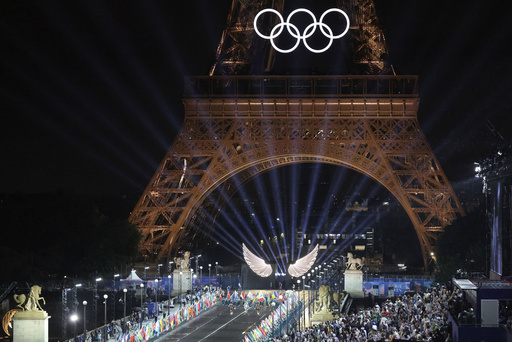In a groundbreaking move for inclusivity, drag queens stole the spotlight at the Paris Olympics opening ceremony, celebrating the vibrant French LGBTQ+ community while sparking controversy over a scene resembling “The Last Supper.” Held by the Seine River, the four-hour extravaganza featured international stars like Celine Dion and Lady Gaga, known as queer icons, blending traditional and contemporary French culture with a hint of campiness, culminating in a procession of barges carrying Olympians.
Nicky Doll, a contestant on “RuPaul’s Drag Race” Season 12 and host of “Drag Race France,” participated in a high-energy fashion segment alongside “Drag Race France” Season 1 winner Paloma, Season 3 winner Piche, and Giselle Palmer, adding their fierce style to the runway show. Le Filip, the recent victor of “Drag Race France,” expressed surprise and pride at the ceremony’s grandeur and representation, praising the global stage for featuring queer individuals and friends.
One of the standout performances included a tableau reminiscent of Leonardo da Vinci’s “The Last Supper,” with the drag queens and performers arranged in a formation resembling Jesus Christ and his disciples, garnering mixed reactions from viewers. While some, like far-right politician Marion Maréchal, criticized the scene as a parody, others like Le Filip defended it as a form of artistic expression sanctioned by the French government.
Thomas Jolly, the ceremony’s artistic director, clarified that the reference to “The Last Supper” was unintentional, redirecting attention from the controversy. Despite the backlash, Le Filip responded to critics with a mix of humor and sadness, highlighting the importance of unity and inclusivity in society. Inter-LGBT President James Leperlier noted that while the ceremony showcased progress, France still faces challenges in fully embracing LGBTQ+ individuals, especially transgender people.
The opening ceremony coincided with a resurgence of drag and voguing in France, with landmarks like cabaret club Madame Arthur experiencing a revitalization. For many marginalized communities in France, drag serves as a form of empowerment and resistance against societal divisions and past discrimination. Despite the differing opinions, Le Filip believes that the message of freedom conveyed in the ceremony will ultimately prevail, serving as a positive representation of France on the world stage.


